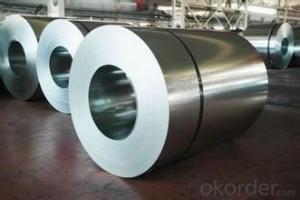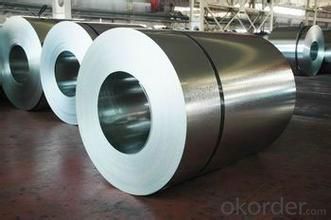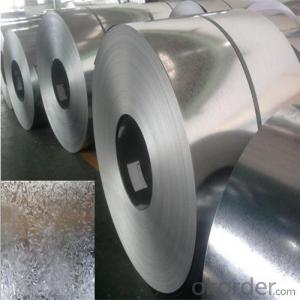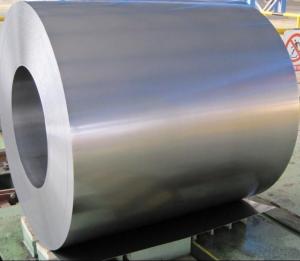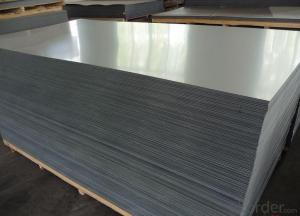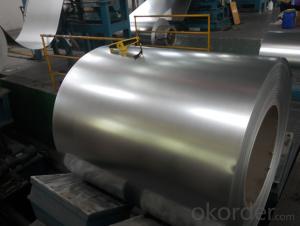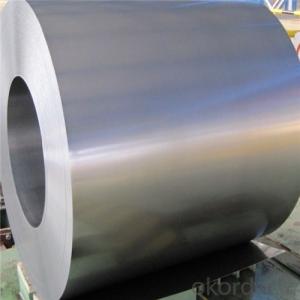HOT-DIP GALVANIZED STEEL COIL OF HIGH QUALITY
- Loading Port:
- Shanghai
- Payment Terms:
- TT OR LC
- Min Order Qty:
- 50 m.t.
- Supply Capability:
- 10000 m.t./month
OKorder Service Pledge
OKorder Financial Service
You Might Also Like
· Standard: AISI, ASTM, BS, DIN, GB, JIS
· Grade: SPCC, SPCD, Q195, DX51D
· Thickness: 0.15-5.0mm
· Model Number: coil
· Type: Steel Coil
· Technique: Cold Rolled
· Surface Treatment: Galvanized
· Application: Container Plate
· Special Use: High-strength Steel Plate
· Width: 600-1250mm
· Length: depends
· commodity: hot dipped galvanized steel coil
· technique: cold rolled
· thickness: 0.15-5.0mm
· width: 600-1500mm
· surface treatment: galvanized
· zinc coating: 50-275g/m2
· coil weight: 3-7 tons
· coil ID: 508/610mm
· spangle: zero spangle, regular spangle, small spangle, big spangle
· payment term: by L/C or T/T
- Q: How do steel coils contribute to acoustic performance in buildings?
- Steel coils contribute to acoustic performance in buildings by providing sound insulation and reducing noise transmission. The dense and solid nature of steel helps to block and absorb sound waves, preventing them from passing through the building structure. This results in a quieter and more comfortable indoor environment, improving the overall acoustic quality of the building.
- Q: How do steel coils contribute to the renewable energy equipment industry?
- The renewable energy equipment industry relies heavily on steel coils, as they are a crucial component in the manufacturing process of various renewable energy technologies. Wind turbines, in particular, heavily rely on steel coils for their construction. The tower, nacelle, and rotor blades of wind turbines all require steel coils. When it comes to wind turbine towers, steel coils are used to fabricate the structural components that provide stability and support. These coils are rolled and welded together to form the tower, ensuring its strength and durability against the wind forces. Steel coils are also used in the production of the nacelle, which houses the generator and other essential components. Steel coils also play a significant role in the manufacturing of rotor blades for wind turbines. These blades are responsible for capturing wind energy and converting it into rotational energy. Steel coils are used to create the internal structure of the blades, providing the necessary strength to withstand the aerodynamic forces. These coils are often combined with composite materials to optimize the performance and efficiency of the blades. In addition to wind turbines, steel coils are utilized in other renewable energy technologies such as solar panels. In the manufacturing process of solar panels, steel coils are used to create frames and supporting structures that hold the photovoltaic cells in place. These frames ensure the stability and longevity of the solar panels, allowing them to effectively capture sunlight and convert it into electricity. To summarize, steel coils are an integral part of the renewable energy equipment industry. They provide the strength, durability, and structural support required by various renewable energy technologies. By enabling the production of wind turbines, solar panels, and other renewable energy equipment, steel coils contribute to the expansion and development of the renewable energy sector. This advancement is crucial in the global transition towards cleaner and more sustainable sources of energy.
- Q: What bike companies make the best Steel Road bikes?
- steel bikes are now mostly custom and expensive colnago lemond are factory [expensive] though giant doesn;t make them that i know of wle.
- Q: How are steel coils used in the manufacturing of automotive bodies?
- Steel coils are used in the manufacturing of automotive bodies as the primary material for forming various structural components, such as body panels, frames, and reinforcements. These coils are typically fed into stamping presses, where they are shaped and cut into the desired shapes and sizes. The strength and durability of steel make it an ideal choice for automotive bodies, providing a solid foundation for safety and structural integrity.
- Q: Can steel coils be stored in a corrosive environment?
- Ideally, steel coils should not be stored in a corrosive environment as exposure to corrosive elements can lead to degradation and damage to the steel surface. Corrosion can weaken the structural integrity of the coils and affect their performance. To ensure the longevity and quality of the steel coils, it is best to store them in a dry and non-corrosive environment.
- Q: How are steel coils annealed to improve their properties?
- Steel coils are annealed by heating them to a specific temperature and then slowly cooling them down. This process helps to relieve internal stresses, improve ductility, and refine the grain structure, resulting in enhanced mechanical properties.
- Q: What are the different types of steel coil slitting techniques?
- There are several types of steel coil slitting techniques, including rotary slitting, loop slitting, and double slitting. Rotary slitting involves using circular blades to cut the coil into narrower strips. Loop slitting is a method where the coil is fed through a looped pit, and the blades cut the coil as it passes through. Double slitting is a technique where two sets of slitting knives are used simultaneously to cut the coil into multiple strips at once. These techniques are used in various industries to create narrower and more manageable steel strips for further processing.
- Q: I believe steel is stronger but it steel lighter than iron too?
- Steel is iron, with other things added that strengthen it and/or make it less rust liable. So, in general, steel is stronger than iron. In so far as the density, that depends on the steel alloy. Some are higher than iron, some lower. Remember there are hundreds of different steel alloys. edit: but the density is still close to that of iron. density steel 7750 to 8050 kg/m? density iron 7870 kg/m?
- Q: What are the different coil packaging options available for steel coils?
- There are several coil packaging options available for steel coils, including wooden crates, steel strapping, steel or plastic banding, shrink wrap, and stretch film. These packaging materials help protect the steel coils during transportation and storage, preventing damage from moisture, corrosion, and shifting.
- Q: How do steel coil manufacturers handle customer complaints?
- Customer complaints in the steel coil manufacturing industry are addressed and resolved through a structured process. The manufacturer begins by carefully listening to and understanding the nature of the complaint. This involves actively engaging with the customer to gather all relevant information and ensure clear communication. Upon full comprehension of the complaint, the manufacturer promptly investigates the situation. This may involve reviewing production records, analyzing quality control measures, or conducting internal inspections. The goal is to identify the root cause of the problem and determine any contributing factors. Once the investigation is complete, the manufacturer provides a timely response to the customer. This response includes an explanation of the findings, an acknowledgement of the customer's concerns, and a proposed solution or resolution. The proposed solution may involve replacing defective coils, offering compensation, or providing expert advice to mitigate the issue. To prevent future complaints, the manufacturer takes steps to rectify any internal shortcomings. This could involve revisiting quality control procedures, improving communication among departments, or implementing additional employee training. Furthermore, maintaining open and transparent communication with customers throughout the complaint handling process is essential. Regular updates on the investigation's progress are provided, and any further concerns or questions from the customer are promptly addressed. In summary, prioritizing customer satisfaction and ensuring a fair and efficient resolution are crucial in handling customer complaints in the steel coil manufacturing industry. By following a structured approach, actively listening, and taking appropriate corrective actions, manufacturers can effectively address customer complaints and maintain positive client relationships.
Send your message to us
HOT-DIP GALVANIZED STEEL COIL OF HIGH QUALITY
- Loading Port:
- Shanghai
- Payment Terms:
- TT OR LC
- Min Order Qty:
- 50 m.t.
- Supply Capability:
- 10000 m.t./month
OKorder Service Pledge
OKorder Financial Service
Similar products
Hot products
Hot Searches
Related keywords
